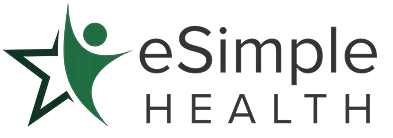Self-employed loans provide essential financial support for freelancers, gig workers, and independent contractors. Such loans accommodate unique income situations by leveraging various financial histories. Understanding the different loan options and their requirements, while addressing challenges in securing funds, is vital for successful application and financial decision-making within non-conventional employment structures.
Understanding Self-Employed Loans
Self-employed loans cater to individuals who operate outside traditional employment structures, such as freelancers, gig workers, and independent contractors. Given their non-traditional income sources, these individuals often face few challenges when securing loans. Typically, self-employed loans are structured to accommodate the unique financial situations of these borrowers, allowing them to leverage their financial histories without depending solely on conventional employment documentation.
Many loan options are available for self-employed individuals, including personal loans, home equity loans, and small business loans which have distinct requirements. Understanding these various options and their accompanying stipulations is crucial for making informed financial decisions. Furthermore, these loans can be used for multiple purposes, such as covering business expenses, consolidating debt, or even managing personal financial obligations.
Types of Loans for the Self-Employed
The range of loan products available to self-employed individuals is diverse and includes both personal and business options. Personal loans offer flexibility, featuring fixed interest rates and regular monthly payments, making them viable for self-employed workers who require reliable cash flow for everyday expenses. Alternative funding sources, such as business credit cards and lines of credit, offer greater flexibility.
Furthermore, loans like the 1099 Income Loans simplify the qualification process for self-employed individuals by allowing them to use alternative income documentation, such as 1099 statements, rather than just tax returns to establish income verification. For individuals with fluctuating incomes, non-QM loans like bank statement loans are beneficial. Bank statement loans assess eligibility based on cash flow over time.
Applying for Self-Employed Loans
Before applying for a loan, self-employed individuals should meticulously research various lenders and their requirements. Proving income without traditional pay stubs can pose a challenge; therefore, gathering suitable documents is crucial. Documentation such as tax returns, 1099 forms, and bank statements is often necessary to prove income stability.
Moreover, understanding the specific loan application process can significantly help in improving approval chances. Loan applications for self-employed borrowers not only require traditional personal information but also additional business-related documentation. For instance, some lenders might ask for a profit and loss statement or client contracts. Preparing this documentation in advance can streamline the application and approval processes significantly.
Challenges in Securing Loans
One of the primary challenges faced by self-employed borrowers is the stringent documentation and underwriting scrutiny due to inconsistent income patterns. This can lead to increased scrutiny during the application process. Lenders typically require applicants to meet some standard loan program criteria, including demonstrating stable income and possessing a good credit score to offset perceived risks.
It is generally recommended that self-employed borrowers have at least two years of consistent income in a similar role. Some lenders also accept a history of one year under certain conditions, but reliable documentation of previous employment is required. Ensuring compliance with these recommendations helps in mitigating lenders’ concerns about income stability and the borrower’s ability to make regular payments.
Tips for Success
To enhance their chances of obtaining a loan, self-employed individuals should conduct thorough research on potential lenders, understand their requirements, and select those that align with their financial situation. Organizing critical documentation, such as bank statements, tax records, credit reports, and proof of employment, is imperative.
Applicants should also realistically assess borrowing needs and their ability to repay the loan, avoiding financial overextension. By checking and understanding their credit score, self-employed individuals can identify any potential concerns lenders might have and pre-emptively address them and improve approval prospects.
Learn More About Self-Employed Loans
Securing a loan as a self-employed individual presents unique challenges due to the non-traditional nature of their income. However, by understanding the diverse loan types available and having thorough preparedness for the application process, self-employed workers can effectively navigate these complexities. Incorporating proper documentation, meeting eligibility requirements, and engaging with experienced lenders can significantly improve approval chances.
For those endeavoring to enhance their understanding of self-employed loans, exploring additional resources, understanding the diverse funding options, and becoming well-versed with documentation requirements can be particularly beneficial. These steps will not only facilitate a smoother lending process but also empower self-employed individuals to make informed financial decisions that align with their long-term goals.
Sources
Understanding 1099 Income Loans for Self-Employed Individuals
Approval Process for Self-Employed Mortgage Applicants

